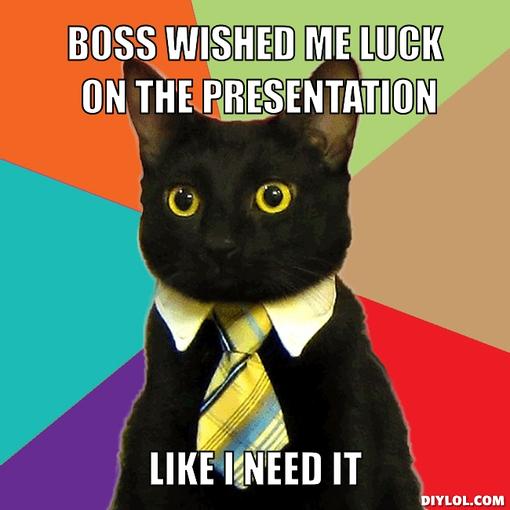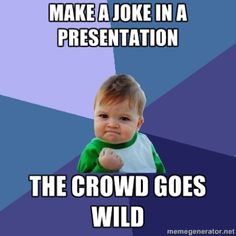
Jul 16
/
Benjamin Schumann
What is a (simulation) conference all about?
DO YOU ENJOY CONFERENCES, PUBLIC SPEAKING AND PROFESSIONAL SOCIALIZING? OR DO YOU FEAR IT LIKE THE PLAGUE?
This week, I was in Glasgow to attend the “EURO2015” conference on OR, simulation, analytics and optimization for my employer decisionLab. I thoroughly enjoyed it. But I had the impression that some people struggled. I believe this comes from a misunderstanding of what a conference is all about…
This week, I was in Glasgow to attend the “EURO2015” conference on OR, simulation, analytics and optimization for my employer decisionLab. I thoroughly enjoyed it. But I had the impression that some people struggled. I believe this comes from a misunderstanding of what a conference is all about…
So what is it all about?
Moment of truth: how many times did you listen to a talk thinking “this is exactly what I needed to hear now”? How many times did it change your work? Now compare that number to the number of talks you attended. Big difference? Conferences are not about expanding your knowledge primarily. If you want to update your knowledge of “what is going on in the field”, check websites or call a colleague.
In reality, conferences are about networking. There, I said that ugly word that sounds like robots linking each other up. Rephrase: conferences are all about making contact to humans. Here are some reminders that help me to remember how to support humans getting in touch on a personal level:

Approach your neighbor: It might be hard but you can get easily get used to it: whenever you sit, queue or walk, talk to the stranger next to you. Everybody is aware this conference is about making contact and nobody will react unfriendly. If you struggle, try to talk to three strangers the first day and increase the number each day. You can always say the same: “Hi I am Ben, nice to meet you. What brings you here?”
Once the conversation started, listen. And then listen some more. Then ask questions. Then listen again. Avoid just waiting for your turn. People are eager to share their experiences and that is a huge gift. 99 out of 100 will want to know about yourself as well, now it’s your turn. Check out “active listening” if you struggle here.
If the event offers speed-networking, go. No excuses. It is the single best way to train you connecting to humans and make it a habit. Also, do your maths: if you talk to three strangers a day, chances to meet someone interesting are lower than if you talk to 40 people in 1 hour. I have always met someone interesting during such events. Plus it helps you refine your elevator pitch (you do have one, right?)
If you talk to someone of interest, avoid being interrupted by conference schedules. Arrange to continue the conversation over lunch or dinner. Imagine how you would feel if someone invited you in that way. It is quite an honor, right? Why not honor someone interesting?
Make an effort to connect people. In Glasgow, I talked to a forester from Sweden and a few hours later, I met a Canadian researcher protecting their forests from invasive bugs. Yet a little later, I introduced them. I am far removed from their professional world but maybe, they can make use of that connection. It is not just about human contact between you and others ;-)

If you think you could help somebody, offer your help. It can be very rewarding for you as your skills helped someone in need. If you could help but it goes beyond what can reasonably be done as a favor, offer to show your contact how to do it himself. Also, I would always invite people to ask for help later: “if you ever want to know more about XYZ, get in touch” (good point to exchange business cards).
You do not need to follow up with everybody you talked to. But do with everybody that triggered an interesting thought. And if you promised to follow up, do not forget it about it.
This might be a tricky one for some: make an effort to speak loud and clear. I am certainly guilty of “giving up” to understand someone during a chat and just nod and smile, just because I could not understand a word they said, even after asking them several times. How about you? Often, you talk in open spaces with lots of chattering around you and it is hard enough to concentrate and follow. So please speak up. It make conversations so much more fruitful.
Oh, and a last wish, since conferences are also about content: please make your work interesting. I am sure it is. You know it is. So show us. Be brave and deviate from the standard format. A key concept that can transform even the most mathematical dry research is … a story. We are story-tellers, we love listening to them and we remember stories much more than proofs. You wouldn’t believe the weak, embarrassing story-hooks I employ but people like them. It is so gratifying to see audience faces light up with interest after an hour of dry presentations when you start “When I was a kid, I remember how…”. Try it out :-)
